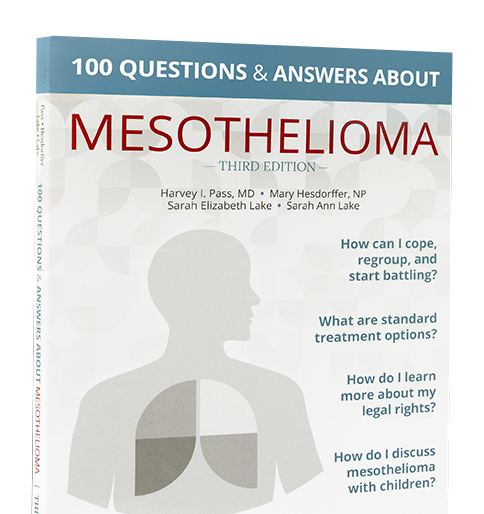A recent study published in the journal Clinical Cancer Research has shown that targeted cancer drug nintedanib is active in malignant pleural mesothelioma (MPM) cell models. The drug also inhibited angiogenesis and tumor growth in vivo.
In the LUME-Meso phase 2 MPM trial, the research team examined the “antineoplastic activity of nintedanib in various in vitro and in vivo models of human MPM,” says CCR. The team recorded and published the following results:
Nintedanib's target receptors were (co)expressed in all the 20 investigated human MPM cell lines. Nintedanib inhibited MPM cell growth in both short- and long-term viability assays. Reduced MPM cell proliferation and migration and the inhibition of Erk1/2 phosphorylation were also observed upon nintedanib treatment in vitro. Additive effects on cell viability were detected when nintedanib was combined with cisplatin, a drug routinely used for systemic MPM therapy. In an orthotopic mouse model of human MPM, survival of animals receiving nintedanib per os showed a favorable trend, but no significant benefit.
Nintedanib significantly reduced tumor burden and vascularization and prolonged the survival of mice when it was administered intraperitoneally. Importantly, unlike bevacizumab, nintedanib demonstrated significant in vivo antivascular and antitumor potential independently of baseline VEGF-A levels.
Conclusions: Nintedanib exerts significant antitumor activity in MPM both in vitro and in vivo. These data provide preclinical support for the concept of LUME-Meso trials evaluating nintedanib in patients with unresectable MPM.
Nintedanib is currently being evaluated in the confirmatory LUME-Meso phase 3 trial.
Mesothelioma is a particularly challenging form of cancer to treat because it is often resistant to traditional cancer treatments such as radiation and chemotherapy. Targeted therapy for MPM, such as nintedanib, is at the center of multiple studies evaluating the effectiveness of these treatments in conjunction with and/or as an alternative to traditional protocols.
According to the American Society of Clinical Oncology (ASCO), “targeted therapy is a treatment that targets the cancer’s specific genes, proteins, or the tissue environment that contributes to cancer growth and survival. This type of treatment blocks the growth and spread of cancer cells while limiting damage to healthy cells.”
“Recent studies show that not all tumors have the same targets. To find the most effective treatment, your doctor may run tests to identify the genes, proteins, and other factors in your tumor. This helps doctors better match each patient with the most effective treatment whenever possible.”
If you have been diagnosed with mesothelioma, talk to your doctor about emerging treatments for MPM such as nintedanib. Newer treatments such as this could be helpful in treating your specific type of mesothelioma, so to your doctor today.
Sources
Laszio, Viktoria, and Zsuzsanna Valko. “Nintedanib Is Active in Malignant Pleural Mesothelioma Cell Models and Inhibits Angiogenesis and Tumor Growth in Vivo.” Clinical Cancer Research, American Association for Cancer Research (AACR), 3 May 2018.
“Mesothelioma: Treatment Options.” Cancer.net, American Society of Clinical Oncology (ASCO), July 2017.






